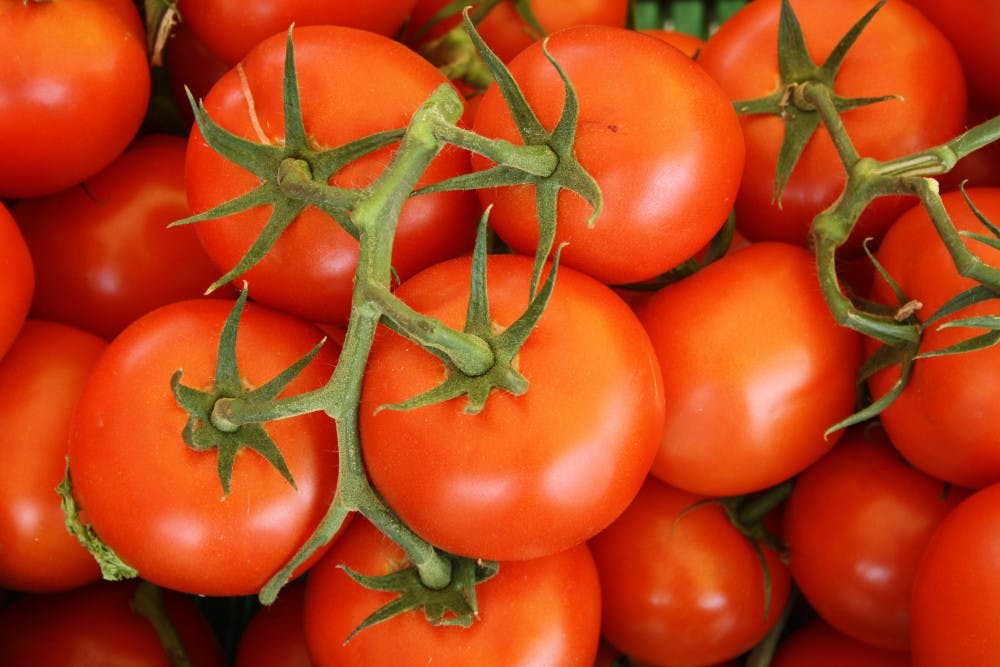Ketchup, salads and salsa all require a good-tasting tomato.
For UF horticultural sciences researchers, breeding these flavorful tomatoes will be even easier with DNA sequencing.
Denise Tieman, a research assistant professor in the UF horticultural sciences department, is making the process of breeding tomato flavors easier using the UF-developed Tasti-Lee hybrid tomato, which grows well in Florida. She will present the findings on Sept. 4 at the UF/IFAS Florida Tomato Institute in Naples, Florida.
Researchers started by using taste tests to identify what makes a tomato taste good, Tieman said. Based on these results, they looked at the biochemistry of the tomatoes to figure out which compounds were the most important for flavor.
“It really just is a combination of different sugars, acids and then the aroma compounds: the things that you smell,” Tieman said. “Every fruit has sugars and acids, but it's the aroma compounds that makes a tomato unique, a banana unique, an apple unique.”
When Tieman had the “recipe” for a good-tasting tomato, she sequenced the genomes of about 400 varieties of tomatoes and tried to find the genes involved in making these particular compounds.
If one variety of tomatoes had high levels of favorable compounds, she knew she had to add in the favorable compounds’ DNA. If another variety of tomatoes had unfavorable compounds, she knew she had to get rid of the unfavorable compounds’ DNA.
Breeding tomatoes for flavor used to be almost impossible because breeders had to prioritize breeding for traits necessary for mass production, such as shelf-life and disease resistance.
Now, the technology exists to breed for flavor without tasting each variety, Tieman said.
“We can actually look at the DNA sequence and say, ‘Is this something that I don’t even want to bother to taste?”’ Tieman said.
The end goal for this research is for consumers to have a better tomato available at grocery stores, and, in turn, eat more healthy foods, Tieman said. The team does not know how much retailers will sell them for.
“You’ll buy tomatoes in the middle of the winter and they don’t taste good, but hopefully, you’ll get a better-tasting tomato year-round and you’ll be happy to eat tomatoes all the time,” Tieman said.
Gurleen Kaur, a 26-year-old UF doctoral student in the horticultural science department and former vice president of the Plant Science Council, has read a lot of papers demonstrating that consumers are looking for better-flavored tomatoes.
Flavor is a complex trait because it’s not easy to breed for. Kaur said that tasting panels are expensive, especially with trained taste-testers, and not every lab can afford them. That’s where the role of this important DNA tool can come into play, Kaur said.
“Tomato flavor is a hot topic,” Kaur said. “Everyone wants good-tasting tomatoes!”
Contact Tien Le at tle@alligator.org. Follow her on Twitter @tientle11.
Denise Tieman, a UF research assistant professor in the UF horticultural sciences department, is researching how to make tomatoes taste better through DNA sequencing. She will present her preliminary findings on Sept. 4 at the UF/IFAS Florida Tomato Institute in Naples, Florida.






